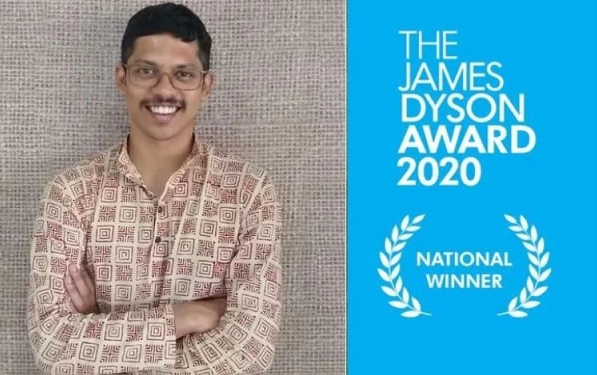TED NewsDesk, AHMEDABAD: A student of the National Institue of Design (Ahmedabad) recently received the James Dyson India Award 2020. Shashank Nimkar has invented “Earth Tatva” which “is a unique material composition that turns post-industrial ceramic waste into a universal reusable material.” as Nimkar describes it.
For the purpose, Nimkar utilised discarded ceramic products called “grog” from the nearby production group and clay to build the new material. The material comes from waste, and the process applied for manufacture is also zero waste. Additionally, the products of this material are also reusable multiple times.
Nimkar claims to minimise mining for naturally occurring reservoirs and landfills by 60 per cent. It can be possible since Nimkar adds that most of its unprocessed resources consist of scrap material discarded by other manufacturers. Nimkar won a sum of approx. 1.90 Lakh for his invention in the contest.
As his source of inspiration, Shashank said,
“I have always been fascinated by the idea of turning waste into a valuable resource. Earth Tatva is a unique material that turns post-industrial ceramic waste into a universal reusable material.”
In a statement released by Dyson, Nimkar said,
“I have always been fascinated by the idea of turning waste into a valuable resource. While working on design solutions, I often wonder what happens to the products and materials at their end of life. On this project, I kept asking myself how I can add value from the inside and not just from a functional or aesthetic point of view. That is how the idea of a universal material was conceived against making a product. Since day one, the aim was to make a closed-loop material that can be incorporated in a zero-waste manufacturing process.”








